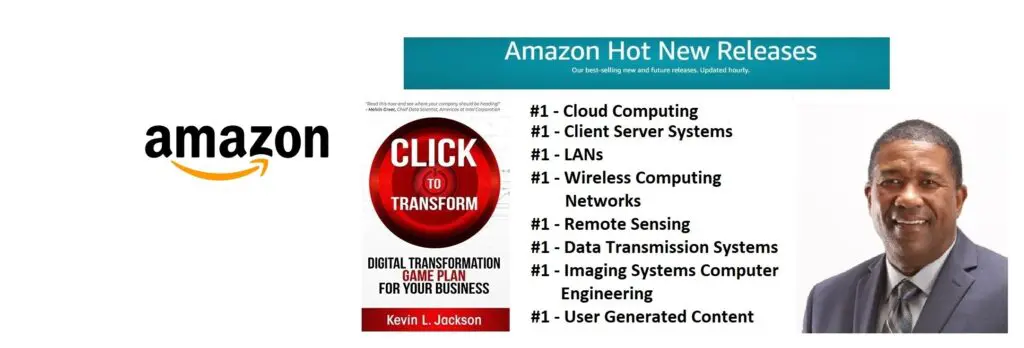Twitter Feed
Cloud Computing Evolves: An Interview with Mats Johansson
Recently, Ericsson Digital released an amazing report on Edge Computing and 5G. In it, they explained how distributed cloud computing is paving the way for the future of network communications. They…
The IoT Nexus: Bosch Connected World 2019 in Berlin
Next week, I will be influencing #LikeABosch as I accept an invitation from the company to attend Bosch ConnectedWorld 2019 (BCW19) in Berlin, Germany. This is one of the world’s largest international…
Survive and Thrive With Digital Transformation
First cloud computing then multi-cloud. How can we get ahead of this digital transformation nightmare? These are the laments heard in conference rooms and board meeting around the world. While…
The “George Jetson” of Today
He grew up in Silicon Valley, landed his first job at Apple Computers, was introduced to Nobel Prize winners by his dad and today, he takes a self-driving car…
MWC19: Where Telecommunications and Cloud Meet
As a cloud solution architect, my passion is learning the details about how cloud computing uniquely supports specific business cases. This curiosity is what drove my excitement when Ericsson invited…
Tulane University SoPA Selects “Architechting Cloud Computing Solutions”
Last week, Packt Publishing announced that “Architecting Cloud Computing Solutions” by Kevin L. Jackson and Scott Goessling was selected for use by the Tulane University School of Professional Advancement, Applied Computing Systems & Technology Program as the textbook for…
5G Wireless Technology Connecting Healthcare
Healthcare is in the middle of massive change. Called digital transformation by many, this term describes the industry’s pursuit of the many promises offered by connected patients, connected caregivers, and…
Maria Lensing: The Network Platform for Healthcare’s Future
As a girl, Maria and her family traveled to Memphis, Tennessee to get cancer treatment for her sick brother. The miracle she observed, as the healthcare providers saved her brother’s…
How “Big Iron” Does “Big Regulation”
According to Verizon, there were over there were over 53,000 security incidents in 2017, with over 2,200 of those identified as confirm data breaches. A Ponemon Institute study also showed…
Mainframe Synergies for Digital Transformation
In July of 2018, Broadcom announced its intentions to acquire CA Technologies. In the press release, Hock Tan, President and Chief Executive Officer of Broadcom, said: “This transaction represents an…
The Achilles heel of every transformative business model is their reliance on ever increasing amounts of data that need to be transported quickly across wide area networks and processed at edge computing end points. To meet this expected demand, the global telecommunications industry is rapidly moving toward a future in which networks must have the agility, flexibility, and scalability to deliver aggregated capabilities through fully programmable networks.
Since the late 1970s, new generations of technology and wireless standards have been introduced every decade through the current transition between 4G and 5G capabilities. Limited data capability was provided using circuit-switching under the European Telecommunications Standards Institute (ETSI) Global System for Mobile Communications (GSM) standard. Improved data rates were brought to the market in the late 1990s by using 2.5G and 2.75G technology, which were named GPRS (general packet radio service) and EDGE (enhanced data rates for GSM Evolution). The introduction of the LTE network later set the standard for high-speed wireless communications on mobile devices and data terminals.
Historically, sovereign nations have managed their telecommunications networks as national assets.
The political negotiations that drove that history led to underlying technological choices and today’s
heated international competition around 5G network deployments. In fact, western nations fear that China’s Huawei Technologies’ dominance of 5G technology could give the Chinese government backdoor access to Western mobile networks and the application. This international competition will determine the availability of specific technologies and telecommunications resources in each geographic region.
For 5G networks, data transfer speed, volume, and latency depend on the spectrum bands used and the network usage context (fixed or mobile). MmWave spectrum is a high-frequency technology that lies between 30 GHz and 300 GHz. It is attractive because its shorter wavelengths create narrower beams, which provides better resolution and security for data transmission. A 5G mmWave system requires a significant infrastructure build but could reap the benefits of data transferred at up to twenty times the speed of current 4G LTE networks. MIMO (multiple-input and multiple-output) increases throughput by using high-quality signals to receive multiple data streams at a reduced power per stream. Massive MIMO can multiply the capacity of a wireless connection without requiring more spectrum, which could potentially deliver a fifty-fold increase in the future.
These network capabilities are substantially superior to previous wireless technology generations and have subsequently set off the rapid development of many new application requirements and functions. With this new infrastructure, application components are placed in an optimal location to use compute and data storage services of the distributed cloud. The distributed cloud approach increases capacity, availability, and coverage while also limiting data transfer requirements. A distributed cloud solution enables edge computing by using micro and small data centers. Application developers must learn how to exploit these new design requirements to deliver ever increasing value to their end users.
Learn more about digital transformation innovation: pick up a copy of my new book, Click to Transform!Â

Cloud Computing
- CPUcoin Expands CPU/GPU Power Sharing with Cudo Ventures Enterprise Network Partnership
- CPUcoin Expands CPU/GPU Power Sharing with Cudo Ventures Enterprise Network Partnership
- Route1 Announces Q2 2019 Financial Results
- CPUcoin Expands CPU/GPU Power Sharing with Cudo Ventures Enterprise Network Partnership
- ChannelAdvisor to Present at the D.A. Davidson 18th Annual Technology Conference
Cybersecurity
- Route1 Announces Q2 2019 Financial Results
- FIRST US BANCSHARES, INC. DECLARES CASH DIVIDEND
- Business Continuity Management Planning Solution Market is Expected to Grow ~ US$ 1.6 Bn by the end of 2029 - PMR
- Atos delivers Quantum-Learning-as-a-Service to Xofia to enable artificial intelligence solutions
- New Ares IoT Botnet discovered on Android OS based Set-Top Boxes










